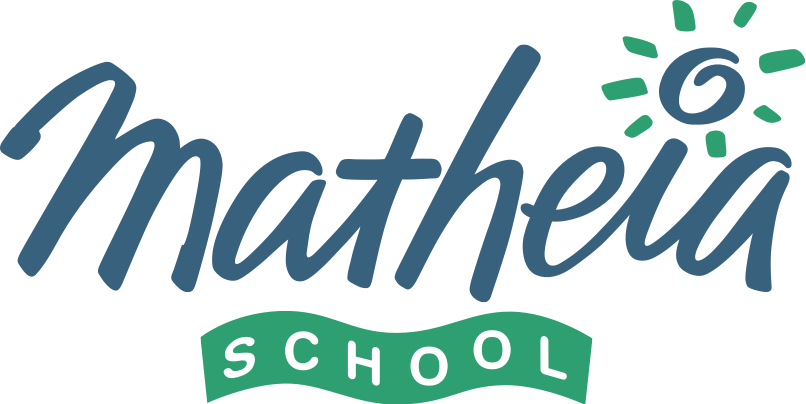Why Free Choice Fridays in the Writing Room?
The following post comes from Silvia, Matheia School’s Writing Teacher…
Why doesn’t my kid have writing on Fridays in the Writing Room? Why do they get to play for a whole class period each week? What are they really learning?
These are fair and valid questions when you hear that a kiddo has a recurring “play time” in school outside of the park and after lunch playtime. During my time at Matheia I have been able to create a time in our week that, on the surface, looks like free time. When kids go home, they share the mountains of drawings and paper planes and paper chain links. Their parents ask, “What did you do in class today?” Inevitably, students report that they played or had free time with no further explanation and sometime in January parents begin to wonder what is going on and what are their children actually learning.
The answer is this: the skills your kids gain from Free Choice Fridays changes all year long and, sometimes, it changes from week to week. At the beginning of the year, adjusting to a new school, new teachers, new kids, and a new schedule is exhausting! By the time Friday rolls around, kids need a break to process what they have learned. They have spent all week learning about how to do things in new and different ways. During Free Choice Friday, they learn about negotiating materials and toys. They learn how to ask for help and that asking for help is a good thing. They may have had more focused instruction time than ever before and that amount of focus is exhausting, especially after a summer break. However, developmentally, this “downtime” is when their learning is really solidifying. They are having the opportunity to choose activities in which they can practice new skills they learned that week.
Free Choice Friday allows kids to practice choosing. In recent years, students arrive at school with having less opportunity to make decisions. Toys were laid out that they were allowed to learn and play with. They were directed in play by adults or older children, but rarely asked to decide for themselves what to play if the only limits available to them were the walls that surrounded them. There are a variety of reasons why students haven’t made as many choices, but the results are the same. They haven’t had enough practice at making choices.
During this time, students are introduced to new games and activities that they otherwise wouldn’t learn during their usual writing instruction. They learn how to ask peers to play a game and then learn how to accept that person’s answer. How do you respond when your friend said they don’t want to play a game with you? Does it mean they don’t want to play with you or that they don’t want to play that game? How do you practice doing an activity that someone else suggests when you are usually the one to make up games?
The learning environment becomes more collaborative. All of these opportunities for negotiation allow students to practice these interpersonal skills in a low-pressure environment with the classmates who get to know them and accept them for who they are. There is no need to compete for a friend or teacher’s attention. When it comes time to participate in these behaviors in more academically oriented tasks, students have had lots of practice.
In the article “Learning to Choose, Choosing to Learn,” the author Mike Anderson gives a detailed description of the benefits of choice, both within academic and social behaviors. You can find this article here.
The last question I want to address about Free Choice Friday is, “Why does my kid say they played all day?” Hopefully, my answer will seem obvious. Learning and playing are one and the same. Think about an activity or project you have worked on in the past (or maybe you’re currently working on one, lucky!!) that you really enjoyed. At the end of the day, it was still a project you had to complete, but your satisfaction level changed your perception of the project. With our little ones, they don’t know the difference between play and lessons. In fact, often they will tell you that they know they were playing because it was fun. If it wasn’t fun, then they were learning. As much as that saddens me to think that a child thinks they are learning because it is not fun, it DOES tell me that we must be doing something right if they go home and tell you they played all day!


